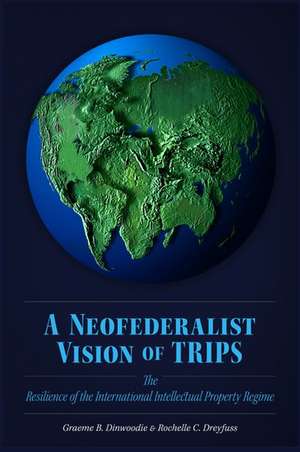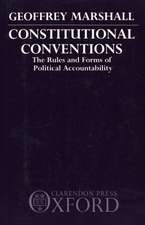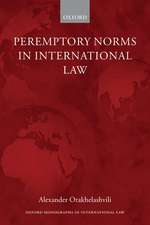A Neofederalist Vision of TRIPS: The Resilience of the International Intellectual Property Regime
Autor Graeme B. Dinwoodie, Rochelle C. Dreyfussen Limba Engleză Hardback – 31 mai 2012
Preț: 656.90 lei
Preț vechi: 995.18 lei
-34% Nou
Puncte Express: 985
Preț estimativ în valută:
125.71€ • 130.76$ • 103.78£
125.71€ • 130.76$ • 103.78£
Carte tipărită la comandă
Livrare economică 04-10 aprilie
Preluare comenzi: 021 569.72.76
Specificații
ISBN-13: 9780195304619
ISBN-10: 0195304616
Pagini: 288
Dimensiuni: 239 x 165 x 28 mm
Greutate: 0.52 kg
Editura: Oxford University Press
Colecția OUP USA
Locul publicării:New York, United States
ISBN-10: 0195304616
Pagini: 288
Dimensiuni: 239 x 165 x 28 mm
Greutate: 0.52 kg
Editura: Oxford University Press
Colecția OUP USA
Locul publicării:New York, United States
Notă biografică
Graeme B. Dinwoodie is the Professor of Intellectual Property and Information Technology Law at the University of Oxford. Before returning to the UK, he taught at several U.S. law schools and has also held a Chair at Queen Mary College, University of London. In 2008, Professor Dinwoodie was awarded the Pattishall Medal for Excellence in Teaching Trademark and Trade Identity Law by the International Trademark Association. Professor Dinwoodie is a member of the American Law Institute, and has served as a consultant to both the World Intellectual Property Organization and the United Nations Conference on Trade and Development. He has been Chair of the Intellectual Property Section of the Association of American Law Schools, and is the current President of the Association of Teachers and Researchers in Intellectual Property Law (ATRIP).Rochelle C. Dreyfuss is the Pauline Newman Professor of Law at New York University School of Law and Co-director of the Engelberg Center on Innovation Law and Policy at NYU. She is a member of the American Law Institute and was a co-Reporter for its Project on Intellectual Property: Principles Governing Jurisdiction, Choice of Law, and Judgments in Transnational Disputes. She is presently serving on the Academies' Committee on Science, Technology, and Law.








